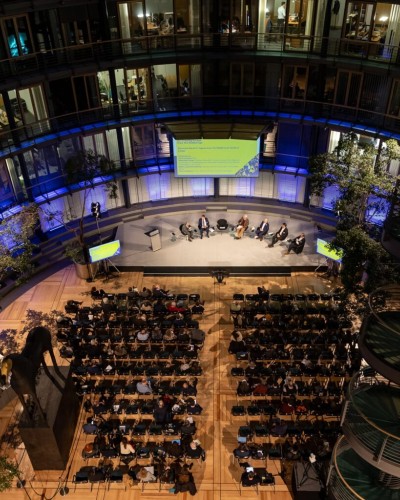Time for culture, time for citizenship
Article written for the A Soul for Europe Online debates 2019.
In her article published in this online debate, Verena Ringler states three reasons why it is time to appoint a Commissioner for Relations with Citizens and Civil Society. Having been part of the A Soul for Europe initiative for several years, I can only support this statement to the newly elected President of the European Commission!
However, it is the first part of a peripheral sentence in Ringler’s text that particularly appealed to me: “Citizens today get active in their free time for three reasons”. To understand the echo that this little transitional sentence found in me, let’s come back… to me.
For 20 years I have been working as a manager in the cultural sector: in theatre creation first and more recently as a consultant for international cooperation. I also claim my status as a cultural actor in my free time as a member of the board of directors of a cultural tango association (and amateur dancer).
I have difficulty drawing a clear line between my free time and my constrained time: I am a cultural actor, whatever the time of day or week, and therefore feel active as a citizen.
Three examples to illustrate my point.
1 – In several European projects I advise, the fundamental challenge of partnership is to invent a way of relating to others that is different from the relationships of power that we practice on a daily basis, whether within teams or between the different partner organisations. And it’s not that easy: understanding each other’s situation, working collaboratively, solving difficulties together… and in particular building a common vision.
Such European projects are an opportunity to implement and work on the values of democracy that we advocate. They are projects that drive the transformation of people and organisations, individual and collective practices, our statutes and our conscience. They participate in spinning the local and European cultural fabric in a more cooperative way.
In several European projects I advise, the fundamental challenge of partnership is to invent a way of relating to others that is different from the relationships of power that we practice on a daily basis, whether within teams or between the different partner organisations. And it’s not that easy: understanding each other’s situation, working collaboratively, solving difficulties together… and in particular building a common vision.
Such European projects are an opportunity to implement and work on the values of democracy that we advocate. They are projects that drive the transformation of people and organisations, individual and collective practices, our statutes and our conscience. They participate in spinning the local and European cultural fabric in a more cooperative way.
2 – A few months ago, several fellow administrators of independent artistic groups and I began a reading of documents used to establish the future cultural policy of the Grand Lyon Metropolis. Each one of us has to take a few hours each month to prepare our meetings and present their views to others. This effort may seem modest, but it requires the willingness to extract this shared time from our daily lives.
We are starting to engage in a dialogue with representatives of the Lyon Metropolis, alongside the usual public consultation methods. Without taking a direct interest, these still new exchanges enrich our vision and capacity for action, perhaps our influence, and, hopefully, will lead our colleagues to broaden their awareness of the environment in which they operate.
3 – The tango association which I belong to gathers about 700 members, is supported by about 50 volunteers and 3 employees. It deploys a project of transmission, practice and support for tango creation: dance (especially), music and poetry. The association’s cultural project, founded 25 years ago, is defined and implemented through the mobilisation of an infinite number of interactions: from a few minutes to whole days of volunteering, a solid economic model that allows everyone access to activities, statutes (employees, volunteers, members, clients) in which everyone can evolve, social links or friendships that allow them to exist in the group, and a variety of important subjects discussed.
The intense activity of those who are making the association, driven by their passion for tango, organises day after day a lively, welcoming and vigorous cultural community.
In conclusion, each of our cultural activities can be considered with a citizen’s consciousness. Watching or rehearsing a performance, building a library or reading a book, running a ballroom or dancing tango are all opportunities to exercise our citizenship. This is an important responsibility for those who have the power to create spaces for relationship and exchange through art and cultural practice. Artists, cultural actors, policy makers: let’s make time spent for culture a time for citizens to be active.

